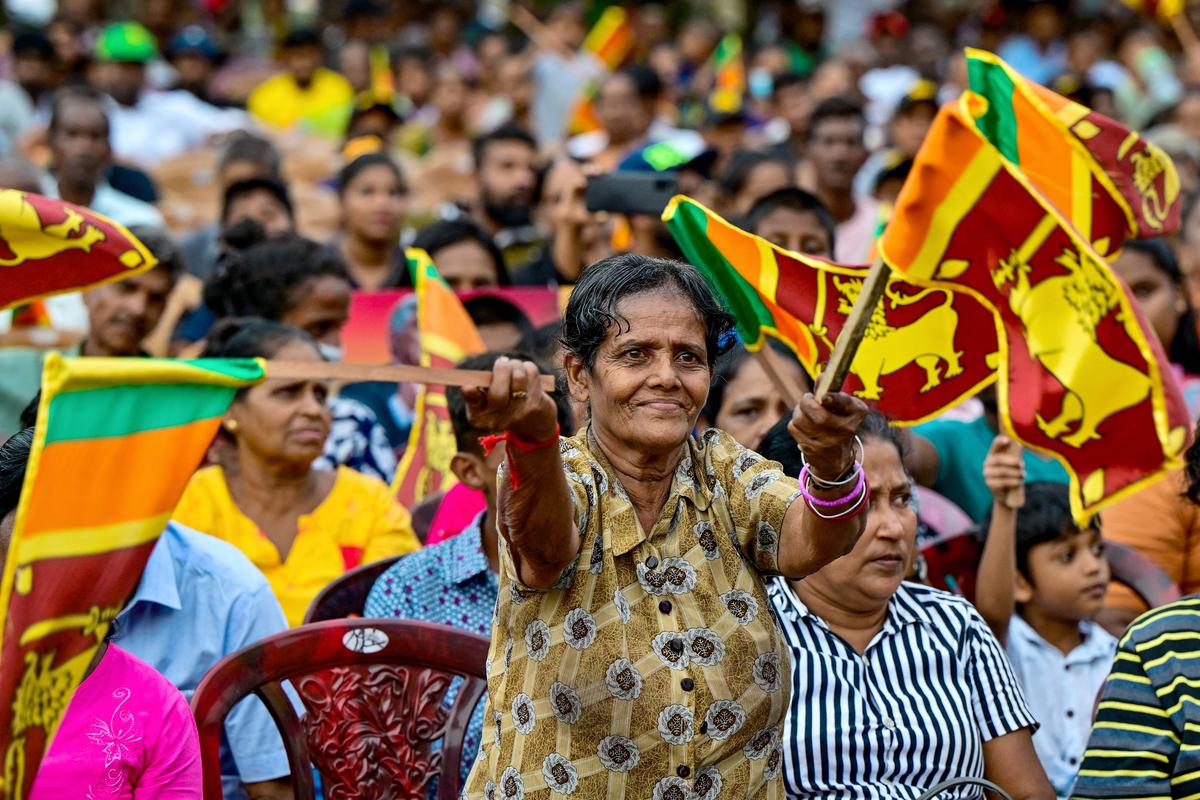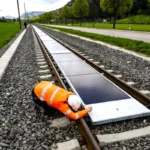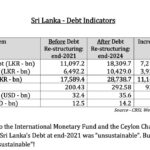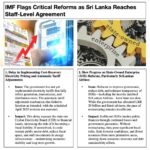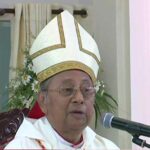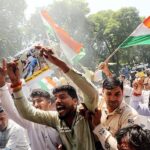Colombo, Sri Lanka (LankaBIZ) Nov 10, 2024. National People’s Power (NPP) that won the Presidential elections of Sri Lanka in September 2024 and elected Anura Kumara Dissanayake as the President of Sri Lanka is likely to face tough challenges to secure simple majority in the next parliament. As a result of the dissolution of the parliament by the new President, the General Elections are to be held on 14th November 2024 to elect 225 legislators to the Parliament. In order to secure the majority of Parliament, the NPP is required to secure minimum 113 seats in parliament to be represented by elected legislators. This elections expected to be tight race as NPP is desperate to obtain at least simple majority to secure the legislative power of the parliament in addition to the executive power of the President, to avoid an hung parliament that would result in political instability in Sri Lanka.
What is Hung Parliament?
A hung parliament is a term used in legislatures primarily under the Westminster system to describe a situation in which no single political party or pre-existing coalition has an absolute majority of legislators in a parliament or other legislature. Wikipedia
Projection based on Presidential Elections
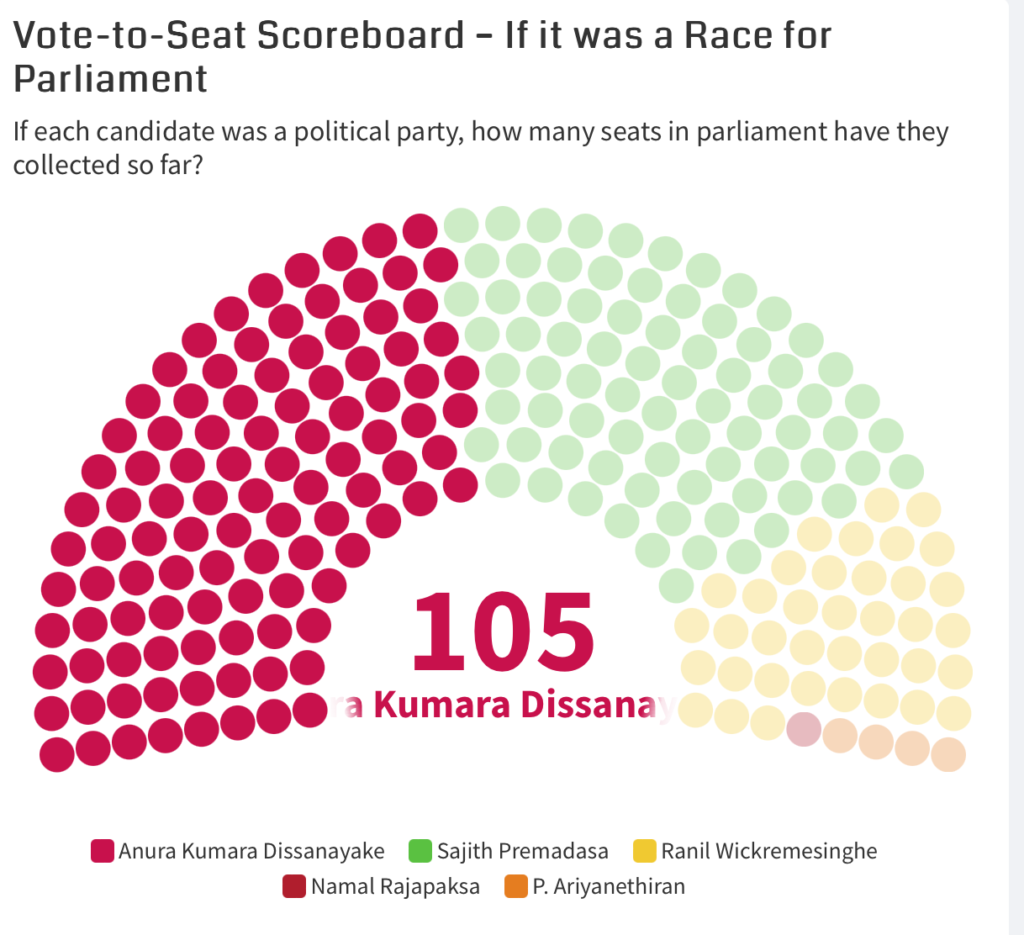
The number of seats projected to be secured by NPP based on Presidential Elections 2024 results are around 105. This is based on predictive numbers provided by www.manthri.lk based on Presidential elections results of 2024.
Comparing Elpitiya PS Results vs Presidential Results
Elpitiya Election Results: Based on the Elpitiya Pradeshiya Sabha Elections that was held in October 2024, NPP secured only 47.6% of votes in comparison to 49.4% votes they secured at the Presidential election. This this indicated 4% of reduction in NPP Vote base.
- Elpitiya is a subdivision of the larger Benthara-Elpitiya seat (Presidential contest), so there’s no perfect dataset to compare with the 2024 Presidential Election.
- Elpitiya election used the 2018 Electoral Register, not the 2023 one used in the Presidential Election.
Therefore many first-time voters, a key NPP support base in the Presidential contest, are not represented in the Elpitiya PS election results.
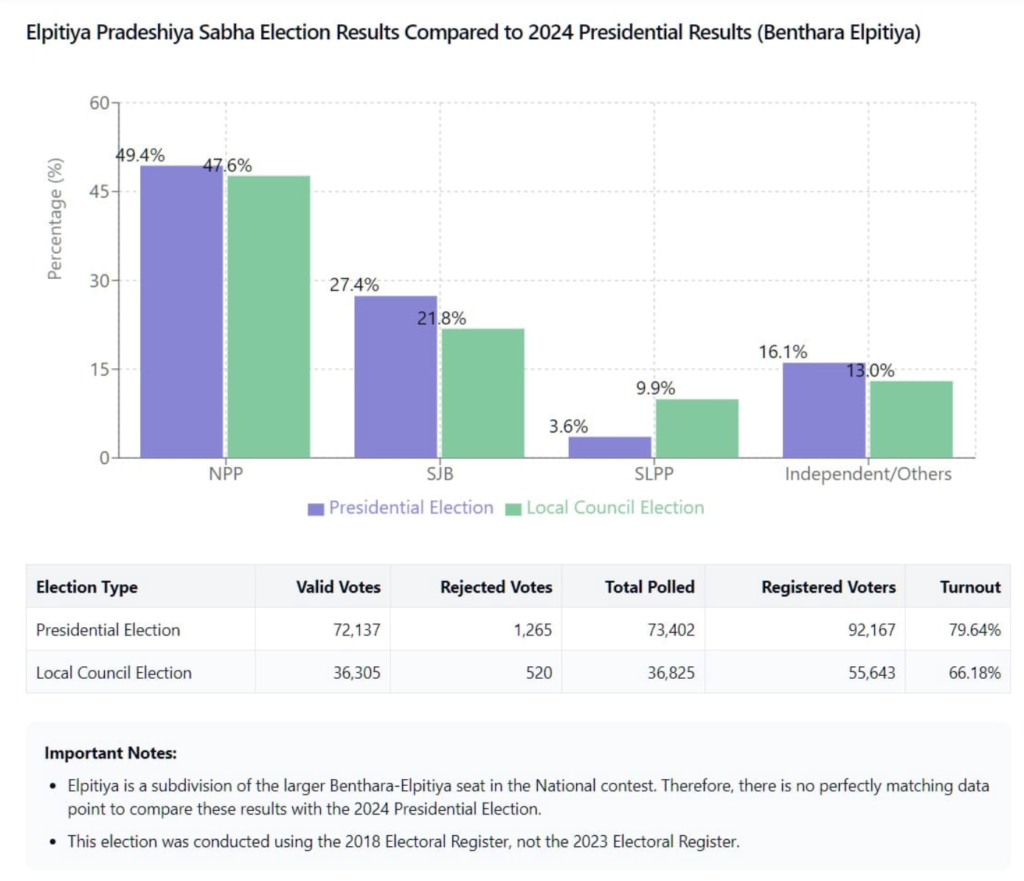
https://whatsapp.com/channel/0029Va9VivZHQbSA525fu82F
Impact of the Vote Turnout and Number of Votes
In order to arrive at a justifiable conclusion we have compared the Voter Turnout Vs Number of Votes in 2019 Presidential Vs 2020 General Elections.
- Presidential elections 2019 total polled was 83.72% and Gotabaya Rajapakse recieved a total of 6.9mn votes
- General elections in 2020 SLPP got 6.8mn votes. Total polled 75.89%.
- At the the Presidential Election 2024 total polled was only 79.46% far less than the previous Presidential and Anura Kumara received a total of 5.6mn votes.
Presidential Election 2019
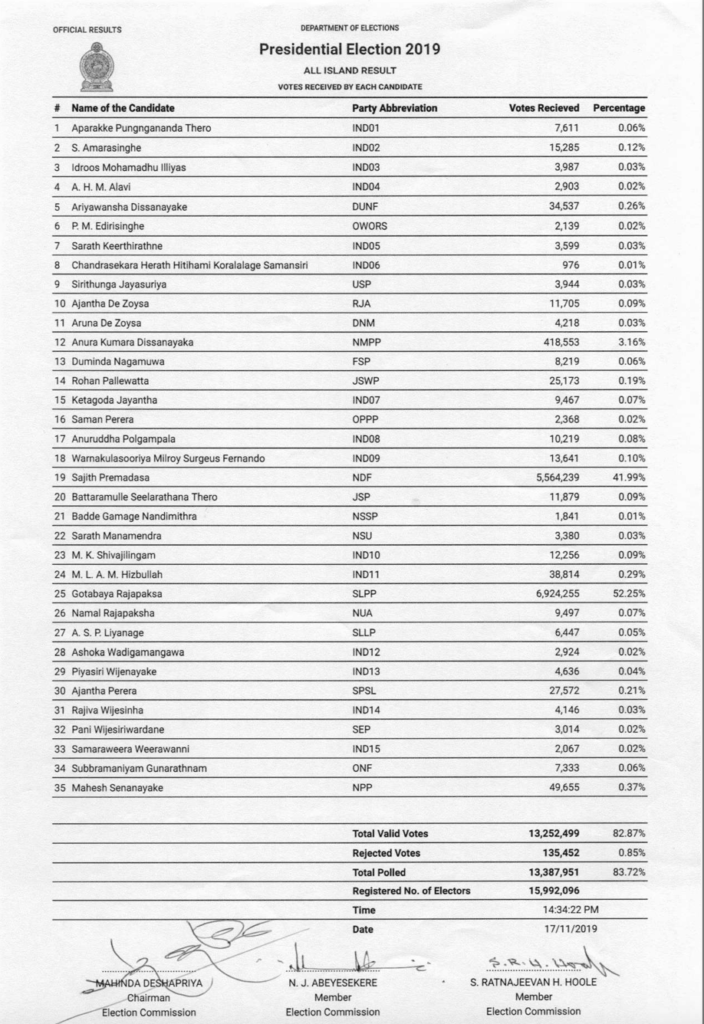
General Elections 2020
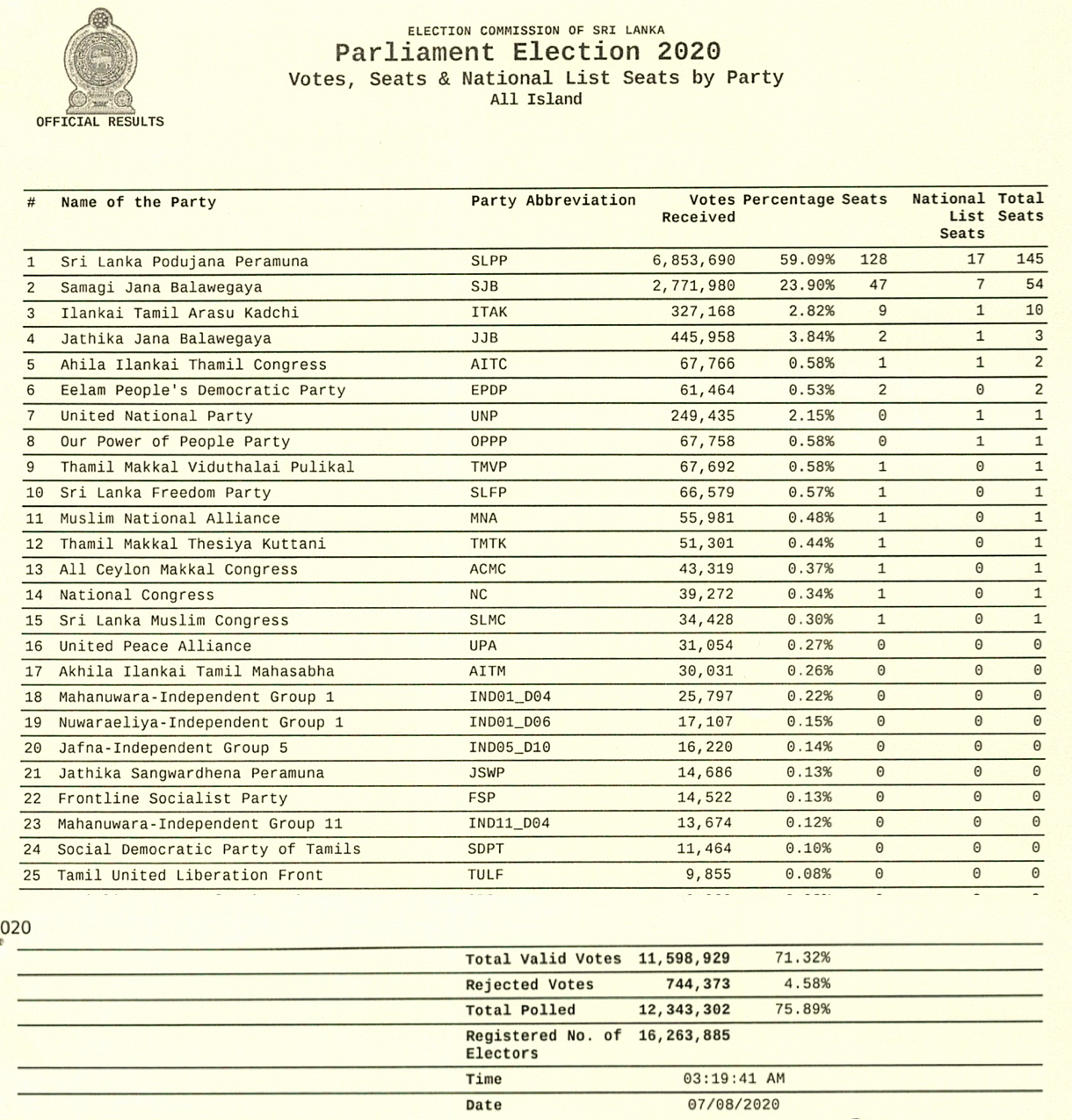
Presidential Elections 2024
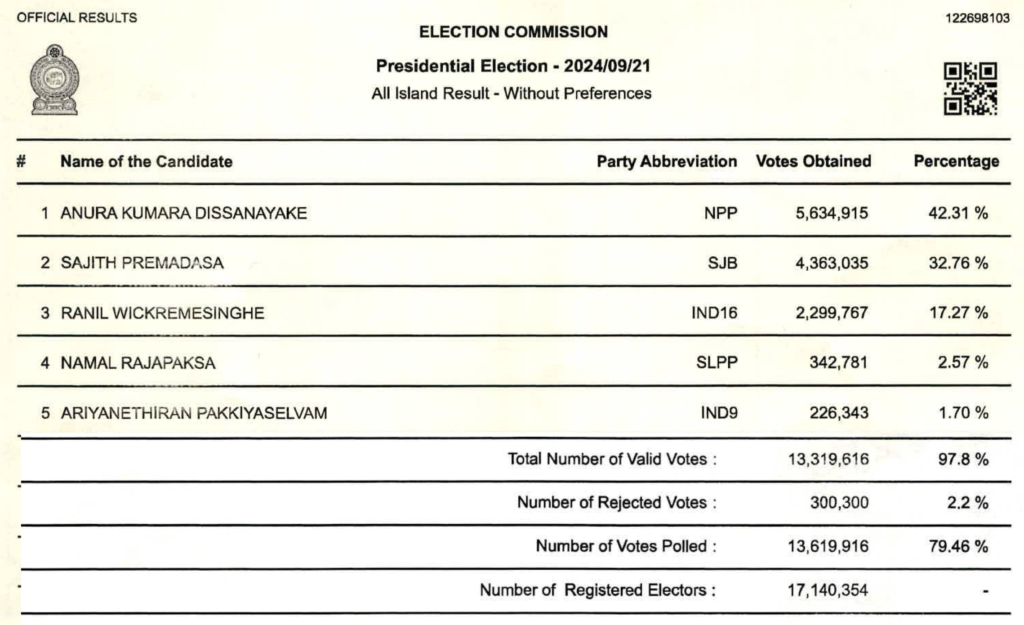
Analysis
- Total polled at the 2024 general elections expected to be be less than the Presidential Elections 2024.
- NPP will get lesser number of votes at the General election 2024 compared to presidential elections 2024
- It is likely that swing voters mostly SLPP supporters may not vote at the forthcoming General elections 2024 which may have a significant impact on the outcome on the final results.
Parliamentary Elections 2024 Prediction based on voter turnout and loss votes.
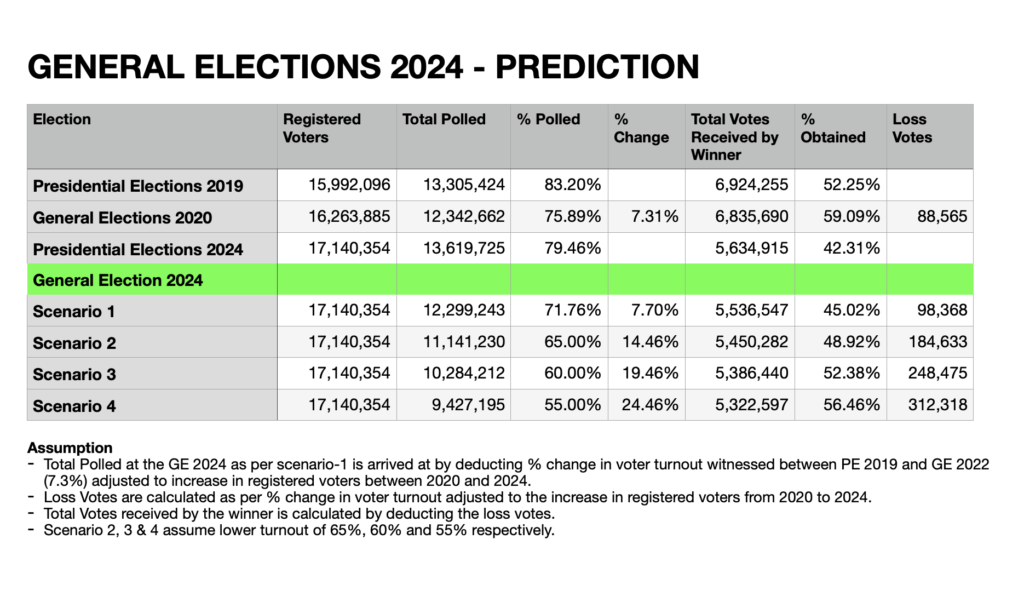
Public dissent
As we approach the upcoming general elections, it is crucial for Sri Lankan citizens to critically assess the performance of the current government led by the National People’s Power (NPP) and its leader, Anura Kumara Dissanayake. While the NPP campaigned on a promise of change, transparency, and economic recovery, several areas of concern have emerged over their time in power.
One of the primary reasons the NPP won the trust of the people was their commitment to resolve Sri Lanka’s economic crisis. However, the government has struggled to deliver concrete solutions. Despite promises of stabilizing the economy and addressing inflation, the cost of living remains painfully high. Many Sri Lankans are still grappling with unaffordable prices for essentials like food, fuel, and medicine.
For instance, the much-touted policy of providing price controls on essential goods has had limited impact. Instead of reducing the burden on the common people, prices have continued to rise, exacerbating the struggles of low-income families. This failure to address the economic hardships faced by ordinary citizens raises doubts about the effectiveness of the NPP’s economic policies.

